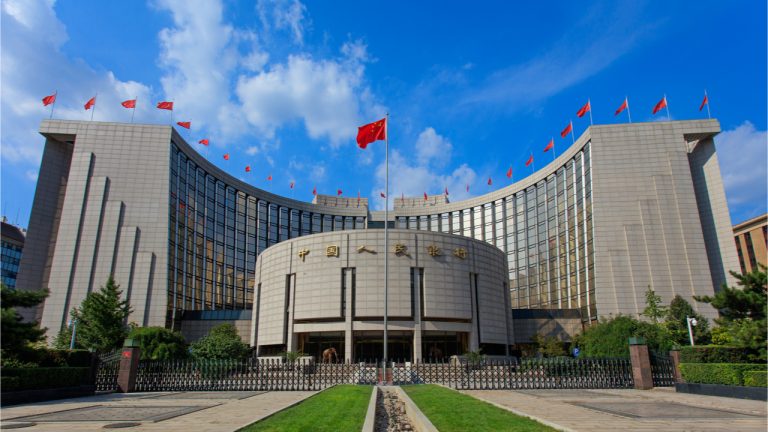China’s central bank has sent notice to the country’s financial institutions instructing them to stop dealing with cryptocurrency transactions. The disclosure notes that the People’s Bank of China (PBOC) aims to protect Chinese citizens and “combat the speculation of Bitcoin and other virtual currency transactions.”
PBOC Tells Banks to Stop Dealing With Crypto Exchanges and OTC Desks
- On June 21, 2021, the People’s Bank of China (PBOC) issued a notice to a number of financial institutions concerning crypto transactions.
- The PBOC says it has discussed the issue of cryptocurrencies with financial services firms like the Industrial and Commercial Bank of China, Agricultural Bank of China, Construction Bank, Postal Savings Bank, Industrial Bank, and the Alipay (China) Network.
- The PBOC stressed that “virtual currency trading activities disrupt the normal economic and financial order, breed the risks of illegal cross-border transfer of assets, money laundering and other illegal and criminal activities, and seriously infringe the people’s property safety.”
- China’s payment institutions and banks must implement strict guidelines on “bitcoin risks,” “token issuance financing risks,” and other regulatory requirements the PBOC notice details.
- Financial institutions “must not provide account opening, registration, and registration for related activities,” the central bank added.
- China’s Postal Savings Bank followed up with a statement and explained that it will not allow cryptocurrency transactions in any manner.
- “According to relevant regulations of the People’s Bank of China, no institution or individual may use our bank’s accounts, products, services, and channels to conduct token issuance financing and ‘virtual currency’ transactions,” China’s Postal Savings Bank said.
- The Postal Savings Bank also said if Chinese citizens notice crypto activity or any virtual currency “related behavior, you can report it to our bank.”
- The PBOC news follows the June 20 mandate from Sichuan officials that banned bitcoin mining in the region. Since the banning in five major Chinese provinces, Bitcoin’s hashrate has plummeted to 100 exahash per second (EH/s).
if (!window.GrowJs) { (function () { var s = document.createElement(‘script’); s.async = true; s.type=”text/javascript”; s.src=”https://bitcoinads.growadvertising.com/adserve/app”; var n = document.getElementsByTagName(“script”)[0]; n.parentNode.insertBefore(s, n); }()); } var GrowJs = GrowJs || {}; GrowJs.ads = GrowJs.ads || []; GrowJs.ads.push({ node: document.currentScript.parentElement, handler: function (node) { var banner = GrowJs.createBanner(node, 31, [300, 250], null, []); GrowJs.showBanner(banner.index); } });
- Chinese journalist Colin ‘Wu’ Blockchain also tweeted about the PBOC notice on Monday and said two other financial institutions released statements concerning the subject. “The Agricultural Bank of China once again released the deleted webpage, and Alipay also issued a related statement,” the regional reporter said.
- The price of bitcoin (BTC) tumbled to a low of $31,700 per unit on Monday after the PBOC announcement. Since then the crypto asset has managed to jump back above the $32K zone.
What do you think about the PBOC’s latest announcement against crypto asset transactions and China’s financial institutions? Let us know what you think about this subject in the comments section below.










